Buying plant-based milk can be a challenge as there are so many varieties and brands, with new ones appearing on the shelves every time you visit a supermarket. In this article, I will focus on what ingredients to avoid in plant-based milk and will list the best plant-based milk brands.
What are the additives, and why do brands add them to plant-based milk?
Brands add additives to plant-based milk for several reasons: to improve the texture and taste, shelf life, and, in some cases, to increase nutritional value. The cheaper the ingredients, the longer the milk stays on the shelves, leading to the bigger the profits.
Food safety authorities must approve all food additives for consumption, but we must all start questioning whether a certain product deemed safe means that it is good for us.
Manufacturers do not specify the daily allowances of stabilisers, emulsifiers or preservatives on the labels, so it is impossible to know if you exceed your daily limit.
If we are not careful, we can consume many adjectives, especially if we use many products like plant-based milk, yoghurt, cheese, and vegan chocolates or eat plant-based meat substitutes or not-so-healthy snacks like crisps.
Stabilisers and Emulsifiers
These are the most common stabilisers and emulsifiers I have noticed in different plant-based milks:
- Gellan Gum (E418)
- Xanthan Gum (E415)
- Lecithin (E322): Often derived from soy or sunflower, used as an emulsifier.
- Guar Gum (E412)
Why should you avoid these Stabilisers and Emulsifiers?
We need more human trials, but there is an increasing concern that emulsifiers can affect human gut health by increasing inflammation or even causing a leaky gut (1) (2)(3). For example, guar gum and xanthan gum can negatively affect the gut by changing the number and type of bacteria, causing inflammation (1).
Not genetically modified Sunflower Lecithin used to be considered a better alternative to lecithin from GMO soybeans. However, Sunflower Lecithin seems worse for gut bacteria, causing more inflammation than Soy Lecithin. The reason might be that sunflower lecithin contains inflammatory omega-6. (1)
Although the stabilisers and emulsifiers are tested for safe levels individually, sometimes multiple Gums and Lecithin are added to one product, which could be problematic as we don’t know how they affect the gut when consumed together.
Sweeteners
Here are the top sweeteners used in plant-based milks:
- Sugar
- Agave Syrup
- Cane Sugar
- Coconut Sugar
- Maltodextrin (E1400): A sweetener and thickener.
We choose plant-based milk for its health benefits and natural ingredients; adding sweeteners lowers the benefits and adds unnecessary refined sugars into our diet.
Added sugars and sweeteners not only add calories but also increase the Glycemic Index of the milk, leading to higher sugar spikes.
Maltodextrin is a simple carbohydrate with no nutritional value and many potential health risks. Its GI is even higher than sugar’s. It can also alter your gut bacteria, cause allergic reactions, and lead to weight gain (4).
Flavourings
Here is a list of main flavourings, I have notised when researching plant-based milk products.
- Natural Flavours or Aroma
- Artificial Flavourings
The main purpose of flavourings is to enhance the flavour of the product. They do not add any nutritional value to the food.
While natural flavourings are derived from natural (plant, animal) sources, they are highly processed to isolate and enhanse the flavours. This processing means the final flavouring might contain little of the original material. Additionally, “natural flavour” on an ingredient label can refer to a wide range of substances, making it challenging to identify allergens.
Natural flavourings are more expensive and derived from natural sources, so you would think they are better for you, but most of the time the opposite is case.
" Natural coconut flavorings, for example, depend on a chemical called massoya lactone. Massoya lactone comes from the bark of the Massoya tree, which grows in Malaysia. Collecting this natural chemical kills the tree because harvesters must remove the bark and extract it to obtain the lactone. Furthermore, the process is costly. This pure natural chemical is identical to the version made in an organic chemistis laboratory, yet it is much more expensive than the synthetic alternative. Consumers pay a lot for natural flavorings. But these are in fact no better in quality, nor are they safer, than their cost-effective artificial counterparts.” (5)
Whether natural or artificial, flavourings are both created in the lab and do not have any nutritional value. Yes, flavourings are safe in small doses, but when we have a choice, we should choose the brands with no flavours added.
Ideally, we want to avoid any flavour enhancements in our diet so our taste buds become used to and are satisfied with flavours that occur naturally in nature.
Preservatives
Preservatives are very difficult to avoid these days. They have a very good purpose: keeping our food from spoiling. However, like emulsifiers and flavourings, they do not add any nutritional value to our diet.
- Potassium Sorbate (E202)
- Calcium Carbonate (E170)
Potassium sorbate, used to stop moulds and yeasts from growing, has raised concerns because of potential health impacts, including DNA damage and allergic reactions (6).
Calcium carbonate is commonly added to foods for calcium enrichment and to regulate acidity. While considered safe, its consumption in large amounts can lead to imbalances or unnecessary calcium intake.
Acidity Regulators and Antioxidants
- Dipotassium Phosphate (E340ii): Used as a buffering agent and to prevent coagulation.
- Ascorbic Acid (Vitamin C, E300): Added as an antioxidant.
Studies in 2012 have shown that high levels of phosphate in the blood are linked to a higher chance of death in people with chronic kidney disease and also to heart disease in healthy people. Unlike phosphate found naturally in foods, that can not be absorbed by our bodies fully, the phosphate used in food additives is almost fully absorbed in our gut. This absorbed phosphate can harm our blood vessels and speed up the ageing process (7).
Salt and Oils
- Salt
- Rapeseed Oil
Regular rapeseed oil contains erucic acid, which can be harmful in high amounts (8). Although canola oil, a low-erucic acid variant of rapeseed, is widely used and considered safe, it is mostly GMO and highly processed.
Added salt and oils are mainly there for taste and texture and are not necessary in plant-based milks.
Vitamins and Minerals
Vitamins and Minerals is the only group from the list that is added to enhance the products. Here are main ones added to plant-based milks:
- Calcium Phosphate (E341)
- Vitamin D2 or D3
- Vitamin B2, B12
- Vitamin A
- Potassium Iodine
Should I buy fortified plant-based milk brands?
Whether you need to rely on fortified foods depends on your diet. While fortified foods provide nutrition, you should be careful if you are taking supplements as it could lead to an excess. Plus, finding out the quality of added nutrients can be tricky.
My approach is simple: I eat minimally processed foods to meet my nutritional needs naturally. I include essential supplements like B12, D, and Iodine, and I always choose organic and high-absorption options to ensure my body gets the best.
What plant-based milk should I buy?
I would always buy organic plant-based milk with 2 to 3 ingredients. I would always avoid plant-based milk brands with stabilisers, emulsifiers, preservatives, flavourings, and acidity regulators. I would also avoid plant-based milk with added sugar and oil, which only add calories and not much nutrition.
Barista or extra creamy plant-based milk varieties tend to have more gums and oils added and are more calorific.
While doing my research, I was shocked to find that only a few mainstream plant-based brands do not use unnecessary adjectives. If you have an opportunity, buy plant-based milk from artisan brands or, even better, make your own milk so you know exactly what is going into it.
But if you want to buy plant-based milk from your regular supermarket, here are some good brands to choose from and some to avoid.
Little tip: If you do your weekly shopping and do not have time to read every label, use an ingredient scanning app like Yuka to help you speed up the process. I do not go shopping without it anymore.
If you are overwhelmed by which plant-based milk is the healthiest in terms of nutrition, you can read my article, which breaks down each plant-based milk’s nutritional values, environmental impact, and glycemic index.
The best Plant Based Milk Brands:
1. Plenish
I love Plenish as they only have 2 to 3 ingredients in all of their plant-based milk varieties.
Plenish uses only organic ingredients in their plant-based milk. No flavourings, no preservatives, no additives.
2. Nutty Bruce
A great option for nut milk is available in the UK, Saudi Arabia, and Australia. The range includes:
Activated Almond M*lk with four simple ingredients – activated organic almonds, filtered water, organic brown rice and sea salt.
Activated Almond & Coconut M*lk is filtered water, organic coconut, organic brown rice, activated organic almonds and sea salt.
Oaty Bruce Unsweetened Oat M*lk – creamy plant-based milk made with two ingredients: filtered water and organic whole-grain oats.
3. Malk Organics
Organic, simple plant-based milk brand with clean ingredients without gums, oils, fillers or anything artificial.
The plant-based milk range includes oats, almonds, and cashews in original, vanilla, and chocolate varieties. I would normally avoid any flavours, but they use Pure Organic Vanilla Extract made from Vanilla Beans instead of natural or artificial flavourings. Malk Organics uses Himalayan Pink Salt to enhance the flavour.
4. Forager Project
All Forager products are certified Organic.
They offer 3 varieties of plant-based milk as well as many other products like yoghurts, sour cream, shakes and smoothies. The plant-based milks are:
Cashewmilk is made from Filtered Water, Cashews, Oats, and Sea Salt.
Oatmilk: Filtered Water, Oats, Sea Salt.
Half & Half: Filtered Water, Oats, Cashews, Coconut Cream and Baking Soda
5. Elmhurst
Most Elmhurst’s plant-based milk have two simple ingredients but avoid the Basita varieties as they have Cane Sugar and Natural Flavors.
I love that their packaging is very clear and lists the amount of ingredients at the front. Although it’s not organic, it’s still a good option.
6. West Life
Two organic ingredients and 9g of protein per serving are great for muscle growth; just make sure to choose an unsweetened, unflavored type.
Plant Based Milk Brands that are ok but could be better:
Jord Organic but has Rapeseed Oil and salt,
Rude Health (Organic Cold-Pressed Sunflower Oil),
Califia Farms ( Organic Unsweetened Almond Milk only has 3 ingredients, but other varieties fave everything from flavours to gums to oils.
Oatsome – organic ingredients with organic sunflower oil
Natumi– organic ingredients with sunflower oil
Bonsoy – contains Tapioca Syrup
Plant-Based Milk Brands to avoid:
All these brands have ingredients that should not be in healthy plant-based milk, and I would try to avoid buying them.
Oatly. Although Oatly is releasing new varieties with clean ingredients like Oatly Oatmilk Super Basic, I would stick to organic Oat milk varieties if possible.
Alpro, Silk, Almond Breeze, Koko, Mighty, Good Hemp, Chobani, So Delicious, Milkadamia, Pacific Foods, Ripple, Dream, Good Karma, Yofiit, Planet Oat, Minor Figures.
The Takeaway
With a massive choice of plant-based milks on the market, we always need to pay attention to ingredients and understand our dietary needs. Whether you choose a brand that has simple and pure ingredients or make your own at home, the key is to focus on your nutrition and health.
Please Note: This post is for informational purposes only and is based on research. It’s not medical advice. It’s always best to consult a healthcare professional with health concerns. Enjoy reading!
This post contains affiliate links, and I may earn a small commission if you buy through them at no extra cost to you. For more details, please check out my Affiliate Disclosure.
- Naimi, S., Viennois, E., Gewirtz, A.T. et al. Direct impact of commonly used dietary emulsifiers on human gut microbiota. Microbiome 9, 66 (2021). https://doi.org/10.1186/s40168-020-00996-6
- https://nutritionfacts.org/video/are-emulsifiers-like-carboxymethylcellulose-and-polysorbate-80-safe/
- The Food Additive Xanthan Gum Drives Adaptation of the Human Gut Microbiota
4. Matthew P. Ostrowski, Sabina Leanti La Rosa, Benoit J. Kunath, Andrew Robertson, Gabriel Pereira, Live H. Hagen, Neha J. Varghese, Ling Qiu, Tianming Yao, Gabrielle Flint, James Li, Sean McDonald, Duna Buttner, Nicholas A. Pudlo, Matthew K. Schnizlein, Vincent B. Young, Harry Brumer, Thomas Schmidt, Nicolas Terrapon, Vincent Lombard, Bernard Henrissat, Bruce Hamaker, Emiley A Eloe-Fadrosh, Ashootosh Tripathi, Phillip B. Pope, Eric Martens
bioRxiv 2021.06.02.446819; doi: https://doi.org/10.1101/2021.06.02.446819
5. https://www.webmd.com/diet/what-is-maltodextrin
- https://roguescientist.co/what-is-natural-flavor-6-facts-you-need-to-know/https://nutritionfacts.org/video/is-potassium-sorbate-bad-for-you/
- Ritz, E., Hahn, K., Ketteler, M., Kuhlmann, M. K., & Mann, J. (2012). Phosphate additives in food–a health risk. Deutsches Arzteblatt international, 109(4), 49–55. https://doi.org/10.3238/arztebl.2012.0049
- Wang, P., Xiong, X., Zhang, X., Wu, G., & Liu, F. (2022). A Review of Erucic Acid Production in Brassicaceae Oilseeds: Progress and Prospects for the Genetic Engineering of High and Low-Erucic Acid Rapeseeds (Brassica napus). Frontiers in Plant Science, 13. https://doi.org/10.3389/fpls.2022.899076.
Silvija Meilunaite, PN1-NC, CSMC, is a certified nutrition and menopause coaching specialist who writes about midlife health, nutrition, and evidence-based wellness. She focuses on research-driven approaches to feeling better in your 40s and beyond, with a special interest in low-tox living and supportive daily habits.
- This author does not have any more posts.

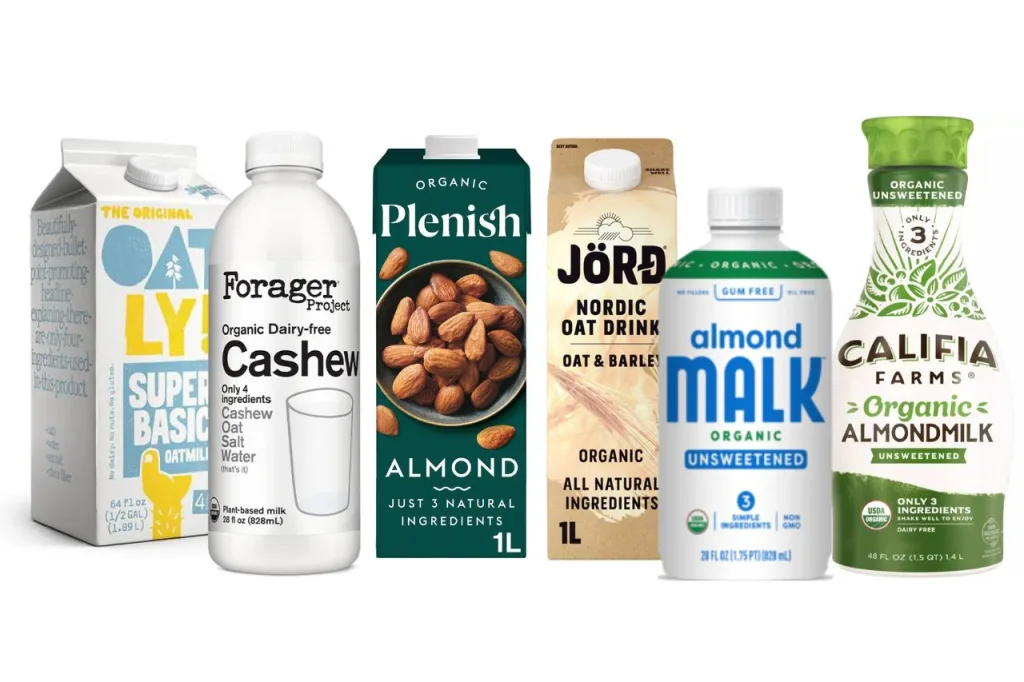
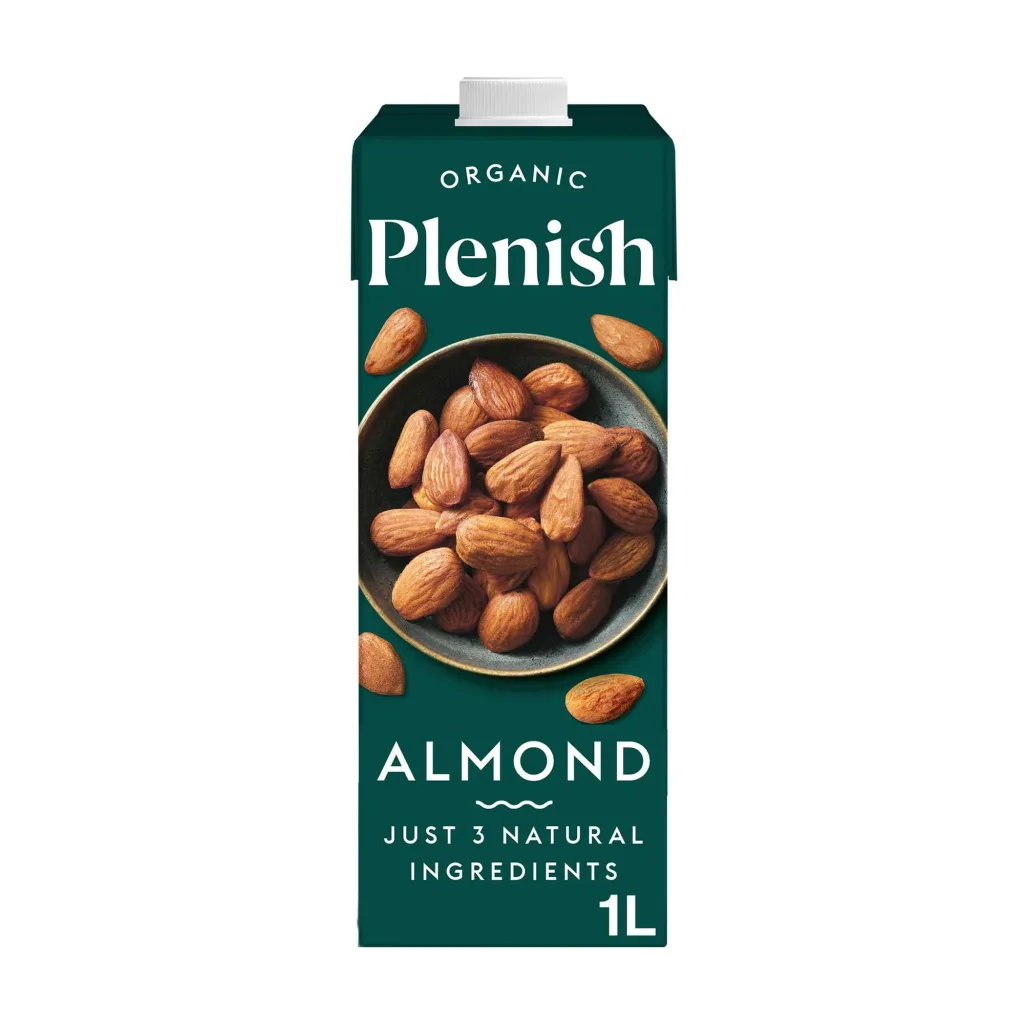
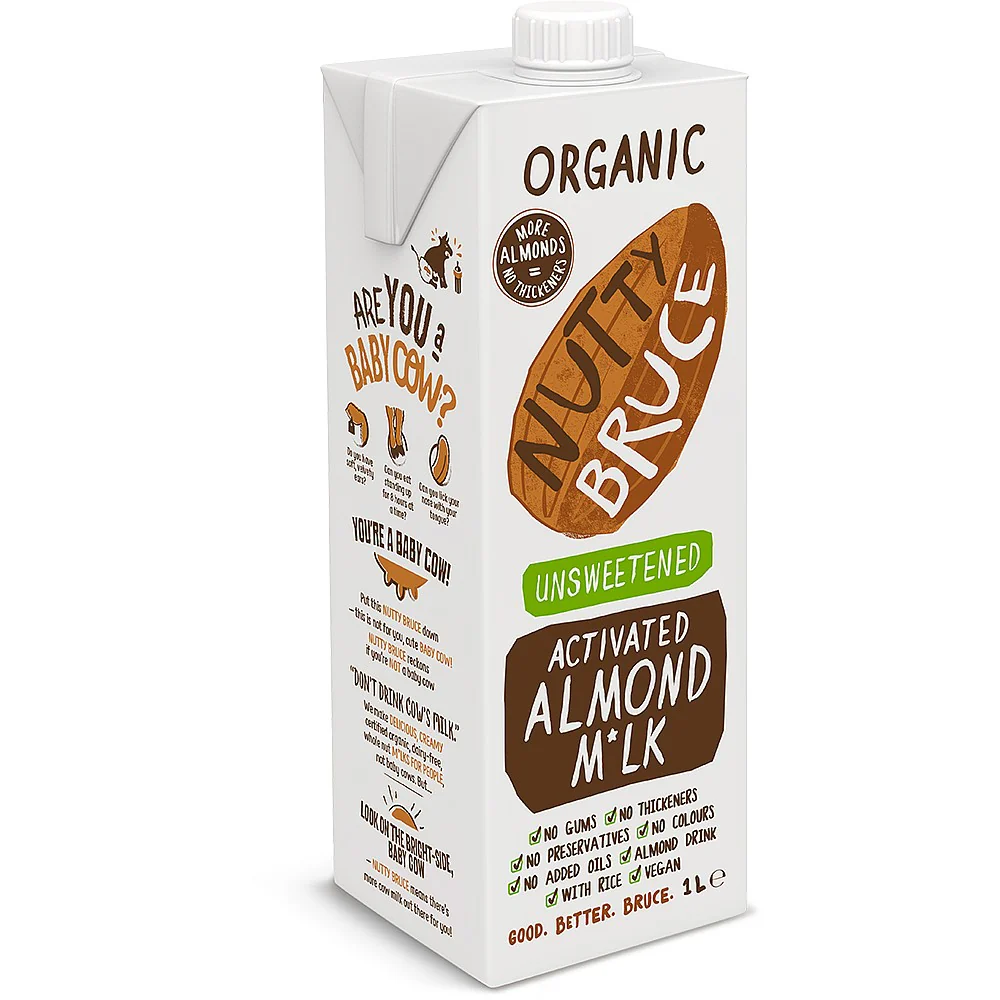
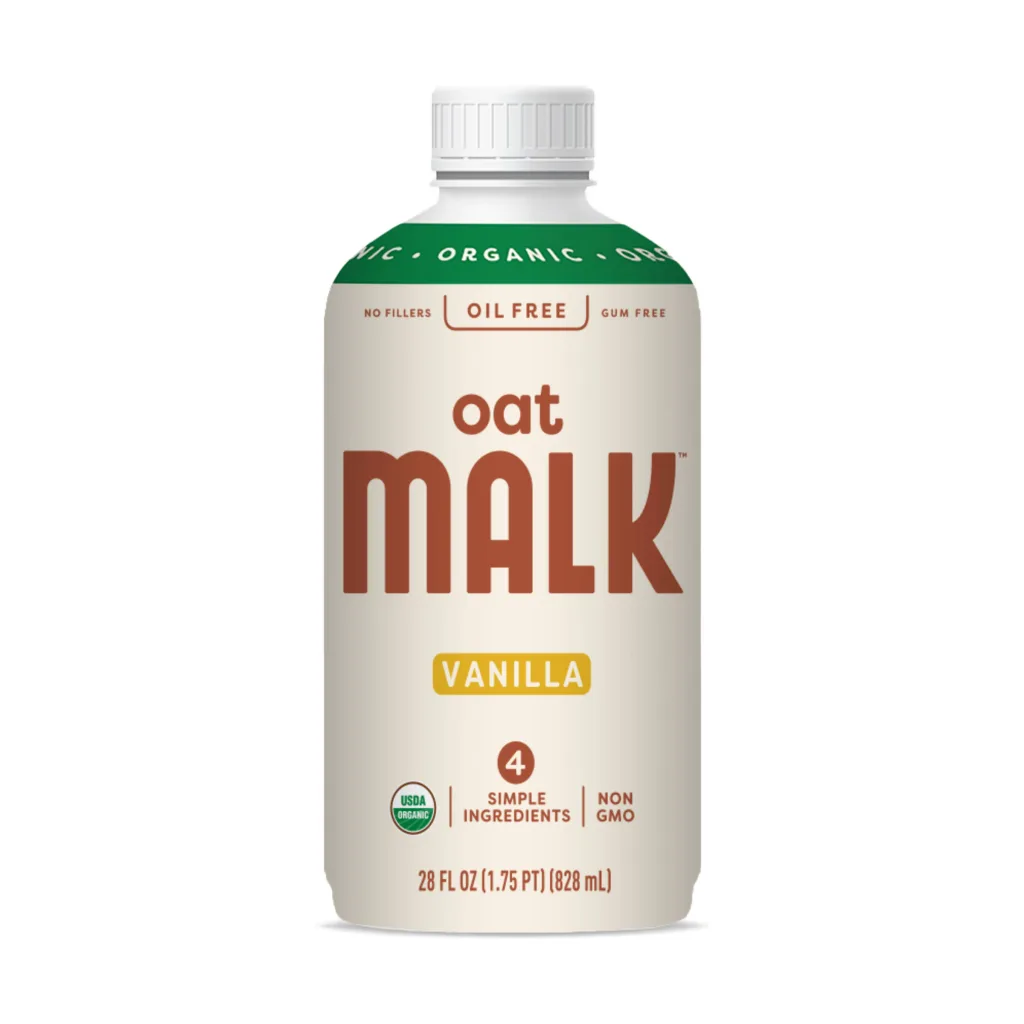
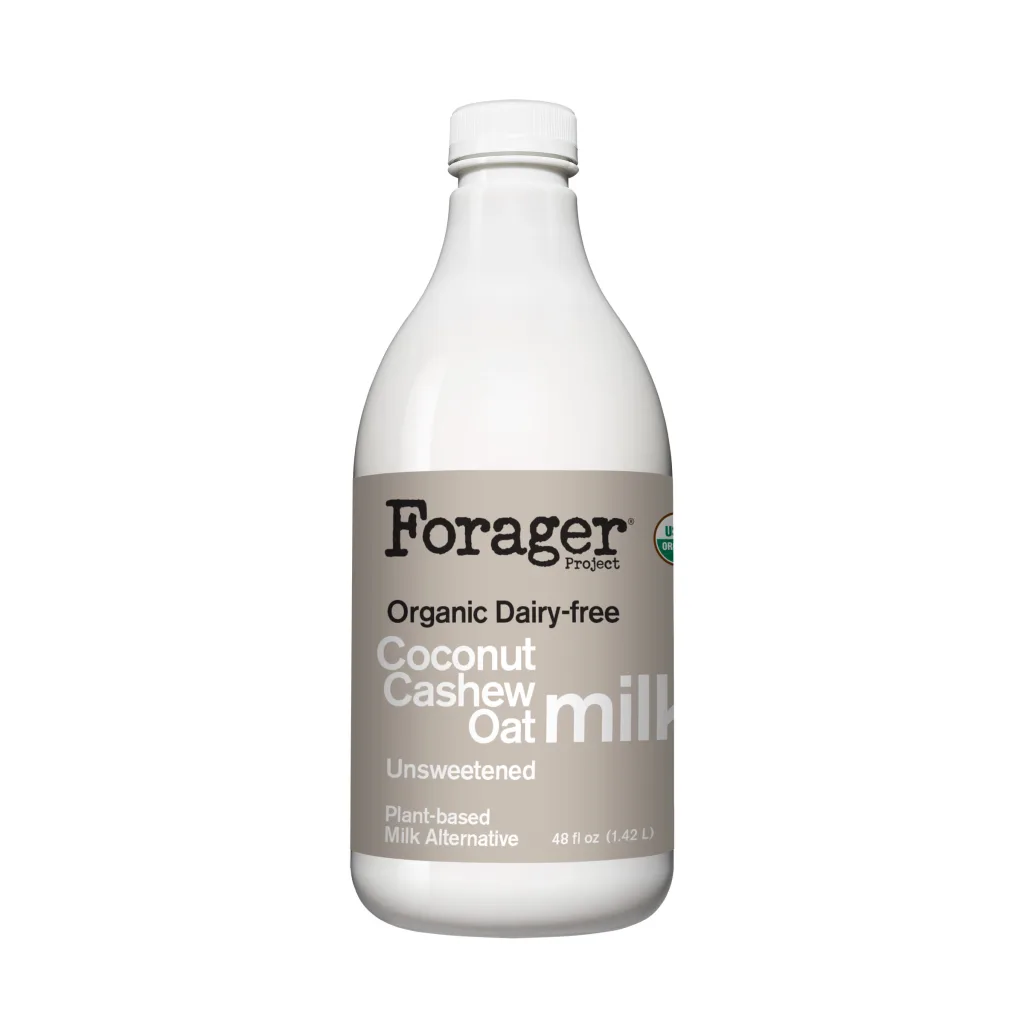
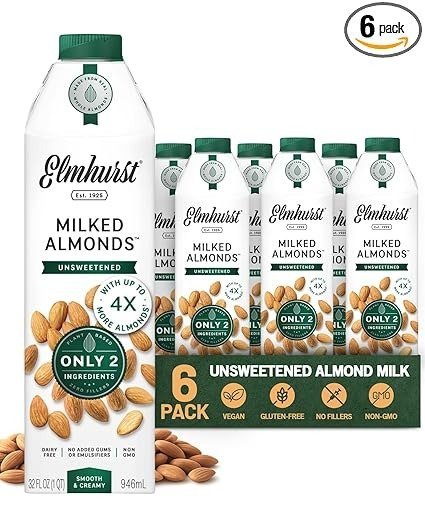
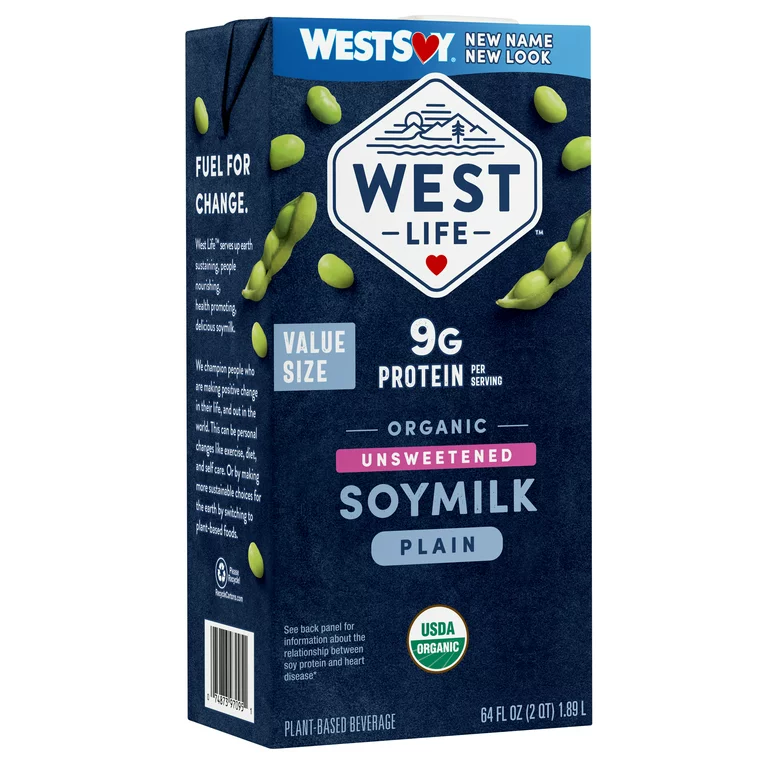
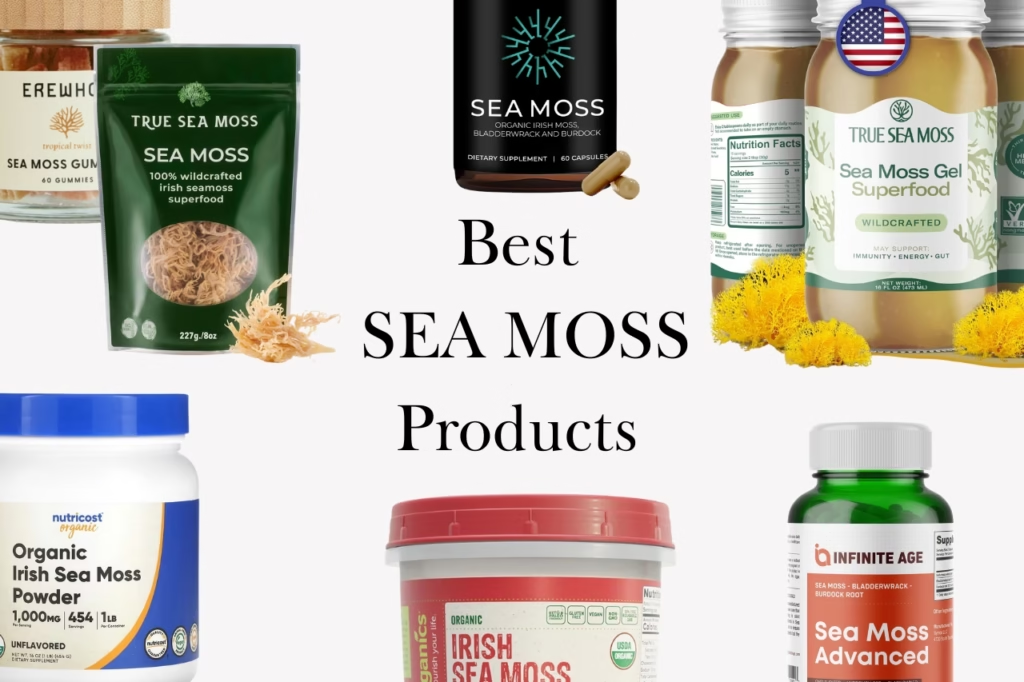
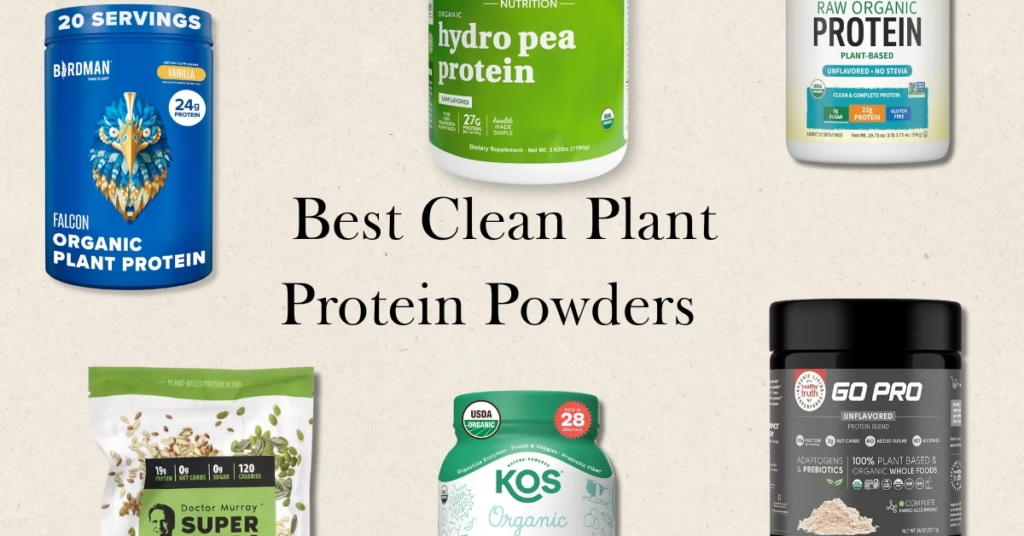
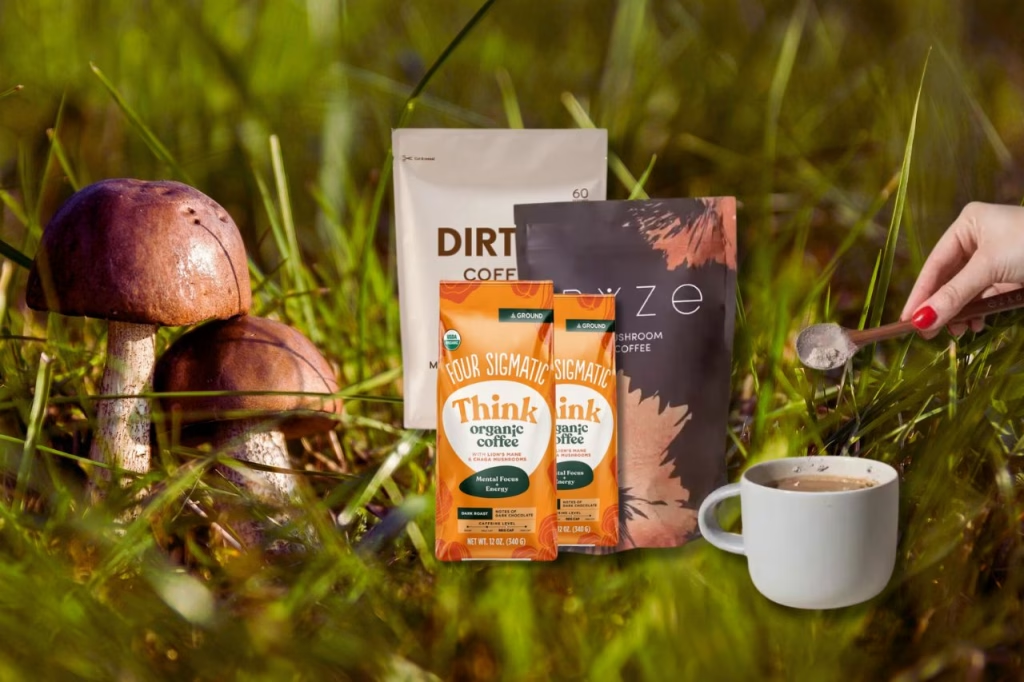
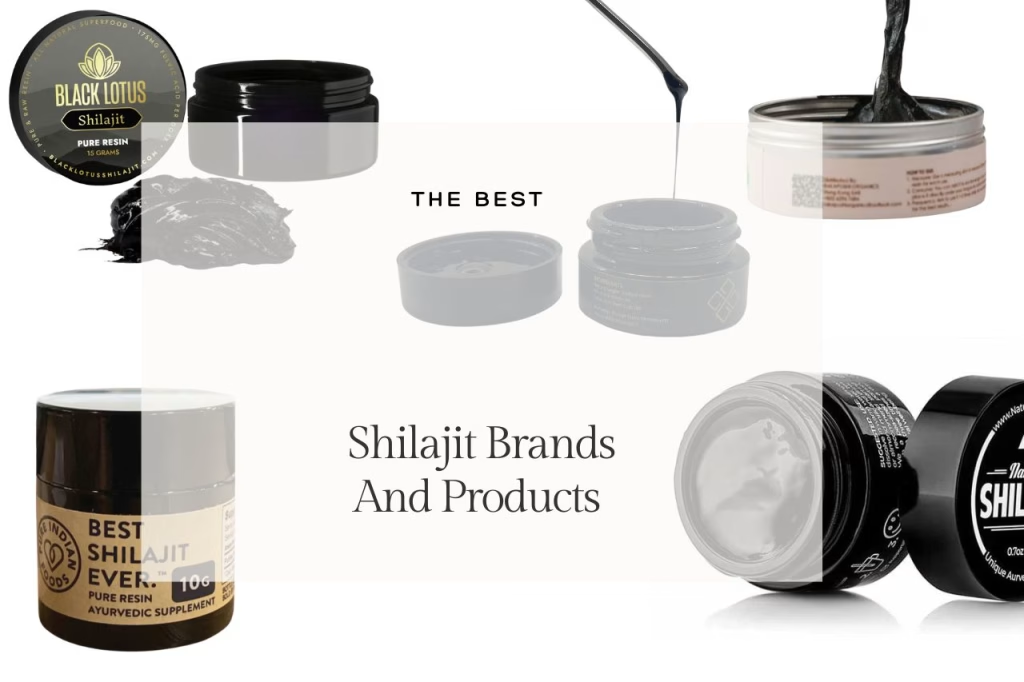
Great insights! This article really helped me understand the topic.
Thank you! I am glad you like it 🙂
I always leave your blog feeling like I’ve learned something valuable.
I am glad you like barefoot basil! I put a lot of effort and research so thank you so much, means a lot!
Why have you listed Bonsoy as one to avoid? I don’t see any gums in it or oils…
Hey, Bonsoy contains Tapioca Syrup but I moved it to “could be better” list as it is only one unwanted ingredient 🙂